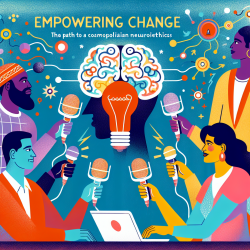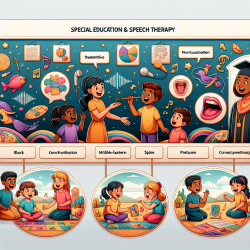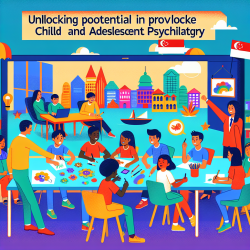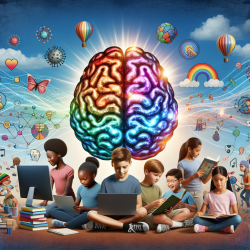Introduction
The COVID-19 pandemic has redefined the educational landscape, pushing many parents, particularly immigrant mothers, into new roles as educational managers. The research article, "When home becomes classroom: The shifting roles of Korean immigrant mothers in the management of children's education during COVID-19 in the US," provides valuable insights into these changes. This blog explores how practitioners can apply these findings to improve educational outcomes for children.
Understanding the Shift
The study highlights how Korean immigrant mothers in the U.S. have adapted to the pandemic's challenges by becoming more involved in their children's education. Traditionally, these mothers coordinated after-school programs and tutoring, but the pandemic necessitated a deeper engagement with public and private online education.
This shift has been characterized by three main themes:
- Managing Public Education at Home: Mothers are now responsible for setting up conducive learning environments and monitoring their children's progress in online classes.
- Managing Private Education at Home: With the closure of private academies, mothers have sought online tutors to ensure their children do not fall behind academically.
- Exploring Alternative Education: Some mothers have considered homeschooling or enrolling their children in online schools as viable alternatives.
Implications for Practitioners
For practitioners, understanding these dynamics is crucial in providing effective support. Here are some actionable insights:
- Enhance Communication: Practitioners should maintain open lines of communication with parents, providing guidance on setting up effective home learning environments.
- Offer Resources: Providing parents with resources on online tutoring options and alternative education methods can empower them to make informed decisions.
- Support Emotional Well-being: Recognize the emotional toll on parents and offer support through counseling or peer support groups.
Encouraging Further Research
The findings from this study open avenues for further research into the long-term effects of these shifts on children's educational outcomes and parental well-being. Practitioners are encouraged to collaborate with researchers to explore these areas and develop evidence-based strategies for supporting families.
Conclusion
The pandemic has highlighted the critical role parents play in their children's education. By leveraging research insights, practitioners can enhance their support strategies, ultimately leading to better educational outcomes for children. To read the original research paper, please follow this link: When home becomes classroom: The shifting roles of Korean immigrant mothers in the management of children's education during COVID-19 in the US.










